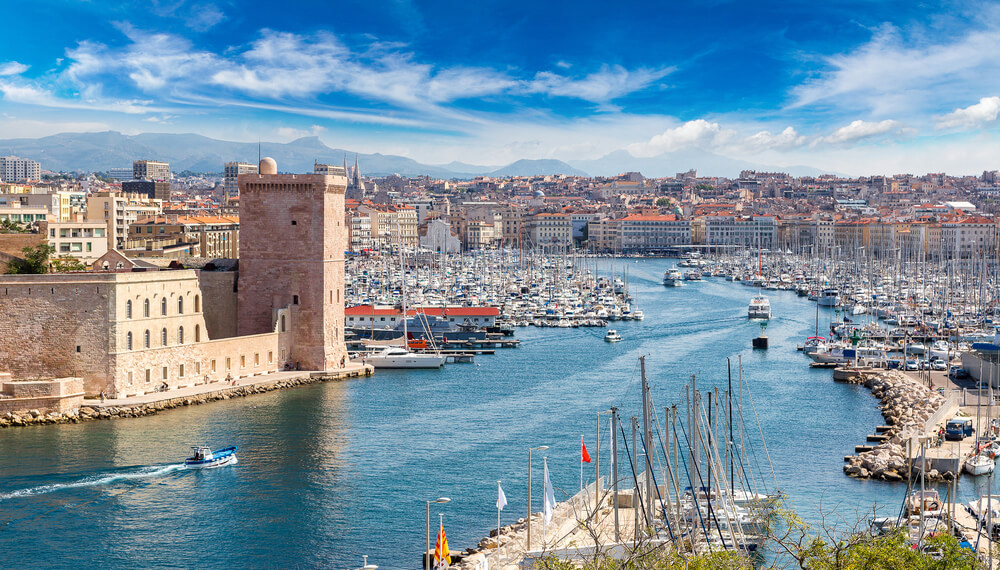The French port city’s recent World Conservation Congress win says a lot about its presence on the international meetings scene.
By Rémi Dévé
Marseille’s growth as a business events destination is due not only to the presence of conference venues you would expect in big cities but also to investment in tourism infrastructure. In Marseille, there are cultural edifices designed by internationally acclaimed architects, like Rudy Ricciotti’s MuCEM, as well as facilities that improve the daily life of Marseille locals and benefit visitors. The mayor of Marseille, Jean-Claude Gaudin, has long had an ambitious strategic vision: The development of the city must come from the development of its tourism industry.
Key Sectors
For association conferences, tapping into that growth means identifying events that are aligned with the city and its surrounding region’s key economic, academic, and scientific fields. Marseille has a wealth of expertise in six fields, the first one being health care. The city, the second-largest in France, is the first cancer research centre after Paris, while its Immunopole cluster is the first French cluster in immunology, spearheading research and development in infectiology and neurology. Its GIPTIS Institute is the largest Euro-Mediterranean research centre for rare disease.
It comes hardly as a surprise the European Society for Blood and Marrow Transplantation (EBMT) chose Marseille for its 2017 annual congress, which attracted more than 5,000 participants. Professor Christian Chabannon, president of the local organising committee, said that Marseille demonstrated that it can combine scientific and medical excellence with friendliness and a high level of hospitality.
“But beyond the quantitative success of the congress, the attractiveness of the city itself and the quality of the scientific programme were clearly a draw, as evidenced by the messages circulating on social networks,” he added. “I believe all stakeholders benefitted from the coming of the event to the city. Congresses such as the EBMT [event] clearly position Marseille as a major business tourism destination in Europe.”
Marseille is also a major player in the digital and creative industries. Accreditated “French Tech” — a label awarded to French cities recognised for their startup ecosystem — it boasts a fast-growing startup network and 8,300 businesses are active in the digital arena. Shipping, maritime, and logistics, on another hand, account for no less than 61,000 jobs, and Marseille, home to CMA CGM, the world’s third-biggest container shipping company, is the first French centre for heavy ship and yacht repair. The city’s aerospace and mechanical research have also attracted the attention of associations. The world Congress on Space Operations recently took place at the city’s Palais du Pharo.
Conservation Progress
Because of the municipality’s commitment to sustainable development and biodiversity conservation — as well as its knowledge in environment and energy — Marseille was chosen to host the International Union for Conservation of Nature (IUCN) World Conservation Congress 2020, which is expected to attract 10,000 delegates from 180 countries. Thirty-five percent of Marseille is considered natural area, which is very rare in France. Some of it is protected by the Calanques National Park, the only national park in Europe with continental, marine, and peri-urban areas.
All of this combined helped make Marseille, which has been building on the legacy of its 2013 European Capital of Culture title, the ideal place to organise the congress. In addition, the bidding process has helped generate a collective will to pursue long-term work on the preservation of nature. Pamela Grasemann, congress manager of IUCN, put it like this: “During the competitive international selection process, Marseille presented itself as a destination committed to sustainability and nature conservation, strongly supporting the vision and mission of our event. In addition, it sees the congress as an opportunity to engage its own citizens around issues of conservation. Its location on the Mediterranean Sea with extremely varied ecosystems and opportunities for enriching excursions are of particular value.
“IUCN was impressed by the interest and support of the city and local and regional authorities as well as by the various stakeholders (from the Parc Chanot to the airport, train, and local transport companies),” she added. “The convention bureau has also been an efficient partner in securing hotel rooms and negotiating hotel rates and conditions for IUCN and in organising our site visits.”
This article was contributed by Boardroom.


